Family Dynamics in Anime: 5 Titles to Warm your Heart These Holidays
Perhaps it’s because of my somewhat broken family dynamic that it is incredibly comforting to immerse myself in anime depicting family relationships. At its best, it can be a reminder of how lovely life can be when things are going well, and perhaps, a ray of hope, or source of nostalgia for those whom are in less than desirable situations. Obviously, if we were talking about the “family” titles “everyone can enjoy” I could put the entire Studio Ghibli collection, amongst many others. However, for this article, I would like to highlight shows or movies which focus on family relationships as their main driving force. That being said, most of these titles are child friendly.
This list contains a lot of spoilers, so if you’re new to anime and would like to get a taste of these shows I recommend streaming the first episode to try it out, and consider purchasing if that initial consult goes well. Happy viewing.
5. Fruits Basket (2001)
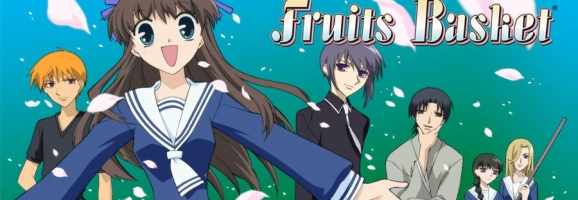
Let’s take a trip down memory lane with an iconic title from the early 00’s. Fruits Basket became popular through its 23 volume manga by Natsuki Takaya. It was a best seller in both Japan and the US, with over 18 million copies sold – and a Kodansha Manga Award to its name. The story follows teen girl Tohru Honda, whom after living in a tent for over a month is invited into the household of one of her classmates, the pretty-boy Yuki Sohma. Tohru discovers the Sohma family has a curse which makes them turn into an animal of the chinese zodiac when they get hugged by a member of the opposite sex.
Fruits Basket makes number five on this list because while it has a strong reoccurring messages about the importance of family, forgiveness and acceptance, the story of the anime is incomplete and the aesthetics fall short compared to other titles of its time. It is a shame that the anime by Studio Deen in 2000 didn’t get a chance to complete the manga which finished in 2006. Throughout 26 episodes, and even more so in the manga the writing becomes predictable and somewhat episodic: dripping with introspective monologues and melodrama. It is good therefore, to take Fruits Basket in small doses so you don’t become emotionally drained. Thankfully there are plenty of silly moments in between which turn Fruits Basket from depressing to inspiring.
How does Fruits Basket differ from other heartwarming, inspiring anime of its type? Many shows follow the lives of high school students. Naturally, there is often a family these characters return home to interact with. Fruits Basket surpasses these titles in the amount of attention given to the characters, and how they interact with everyone else in the group. The character’s feelings surrounding their circumstances spans large chunks or entire episodes.In Fruits Basket, the story is all about Tohru and her experiences in the Sohma family. In nearly every episode, Tohru meets a new member of the Sohma family and discovers their story.The viewer receives the inside scoop as to the characters thoughts, flaws, dreams, and goals.
The duo most focused on in the Sohma family is Yuki and Kyo Sohma, whom represent the Rat and Cat of the Chinese Zodiac respectively. Tohru is stunned to see that in the story of the Zodiac and real life the two don’t get along. When they Tohru and the boys talk one-on-one they are reasonable people. She tries to help the two sort out their differences, and it turns out it’s not just the Zodiac which sets them apart. Their relationship is at times mean-spirited conflict and at others brotherly like boisterous competition. It often escalates to a fist fight or two (or making the house break), like brotherly relationship, although it is not made clear how the two are related. With younger siblings this is a very common, believable, albeit dysfunctional method of interaction. Another anime which displays this is Sakura Kinnomotto and her older brother Toya from Card Captor Sakura (1996). They often call each other names and shout at each other, but they also share chores around the house and a friendship with Yukito. We find out later why Toya pokes so much fun at Sakura, even if it is not the most justified of reasons. Fruits Basket shows this type of sibling rivalry in a more complex fashion. There isn’t just one reason for fighting, there are many.
On the other side of the spectrum, another strange sibling interaction is the one between Yuki and his older brother, Ayame Sohma. They have been cold and distant from one another since an early age. Tohru discovers when Ayame comes to visit that he is holding many regrets about his treatment of his younger brother and the two try overcome this even if they are complete opposites. This shows another way of dealing with conflict: avoidance. The distance between family members is brought to an unnatural extreme in Serial Experiments Lain (1998). Even though Lain has a brother and parents, she spends all her time in a silent household. Each member is isolated from the other and stay confined to their rooms. There is a very inhumane reason for this, but it is not revealed until late in the series. Yuki and Aya’s story is explained in more detail. A more positive view of the sibling relationship is shown in Fullmetal Alchemist (2003, 2009) with Alphone and Edward Elric. They usually get along, but occasionally fight and have disagreements. Their journey for freedom is the main motivation in play. It may be a famous sibling pair, but there are many more elements in Fullmetal Alchemist and it should not be watched for the family aspects alone.
The last major family relationship explored in Fruits Basket is the greif experienced when lacking a mother figure. This is displayed in Kyo, Tohru and to a lesser extent, Momiji. Tohru copes with her lack of a mother through keeping a photo of her nearby, having one-on-one “conversations” with her, providing for herself and perhaps her over willingness to help others. As we learn in the last few episodes Kyo Sohma is dealing with a more destructive form of grief. It adds another layer to his constantly aggressive, anti social personality type. Kyo does not realize this until Tohru reaches out to him. Momiji, learns that his mother disowned him at birth once she learnt of his curse. Yet Momiji goes to visit his mother even if she doesn’t recognize him. All these characters have learnt to deal with grief in different ways, which is true to real life. In Rahxephon (2002) the protagonist Ayato Kamina also has an undesirable relationship with his mother. She does not accept him for who he is or pay him attention. The effects and emotions accompanying this grief is shown very well in that series too. Fruits Basket displays a larger variety of responses.
Studio Ghibli’s My Neighbors the Yamadas was a close competitor for this spot on the list, but Fruits Basket won, for its lovable, unforgettable characters, pretty artwork and stellar, albeit incomplete ending. Fruits Basket has touched the hearts of millions worldwide from all walks of life: male, female, young and old. It has been a gateway drug into anime for many (myself included). It is no surprise that Madman Entertainment have re-released Fruits Basket on DVD and screened it on TV in Australia. It isn’t all doom and gloom as some of my favorite episodes are filler material (Valentine’s Day, New Years Cleaning). To see the best of Fruits Basket continue the anime adventure with the manga!
4. CLANNAD / Clannad After Story (2007-8)
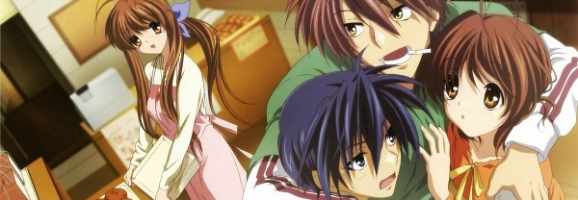
Like Fruits Basket, CLANNAD explores a variety of different family relationships in a similar amount of depth – we learn the character’s thoughts, their feelings on situations, past regrets and what they would like the relationship to become. While Fruits Basket dedicates one episode or two per character and the relationships that trouble them, CLANNAD isolates a single character in”arcs”, which tend to last a couple of episodes at a time. Due to its longer running time this makes the experience of watching CLANNAD a less emotionally draining emotional experience, but it could also been seen as slow-moving for exactly the same reason.
Even though CLANNAD has been greeted with mostly a positive response, it is number 4 on this list simply because its structure and writing issues. In Kanon (2006), the story arcs are organised evenly, with 4 episodes or so per each character. They transition very smoothly into each other, never going for too long or too short. In Kanon the 4 pivotal, most important female leads are covered, while in CLANNAD and the first half of CLANNAD After Story, 11 different story arcs are covered. Not only is this a huge number, but each one is varying in length and the transitions are often jarring or dragged out. This is only an issue within retrospect of the series upon realizing that the story arcs differ largely in quality (Fuko’s arc is one of the most popular apart from Tomoya/Ushio). Fumihiko Shimo did the series structure for both Kanon and CLANNAD, so it would be interesting to hear the explanation behind the decision.
When family ties are not the main topic of discussion CLANNAD has funny and heartwarming moments. CLANNAD’s exploration on relationships are generally more uplifting than tragic or unresolved. The most obvious dynamic to address is father figures through the two main protagonists: Tomoya and Nagisa. Tomoya’s father is the tragic side of the spectrum. He is neglectful, physically abusive (which is implied through dialogue) and suffering from a multitude of mental illness’ and social problems. From what we see Tomoya either tries to cheer his father up or screams at him to keep a distance. It’s this confusing, highly intense push/pull of a relationship which is both contradictory and a realistic portrayal of an adolescent’s ideas and motivations. Neglectful father figures are infamously and heavily portrayed in Neon Genesis Evangelion (1995) through Shinji Ikari and Misato Katsuragi. As everyone who has seen Evangelion will know, the characters thoughts and personality flaws are executed in the form of inner monologues towards the end of the series.
Tomoya is a very believable and likable character. Lacking a mother, and having a negligent, abusive father motivates him to reach out to others and figure out what ‘family’ means to him. In the later half of After Story, Tomoya reflects on his relationship with his father and accepts the situation. This reflection on our parents once you have become an adult yourself is something that isn’t shown in anime. On the opposite side of the spectrum we have Nagisa Furukawa, whom has a far healthier relationship with her parents. Upon meeting them in episode 1, Tomoya marvels at how strange they are: Akio is aggressive and joking while Senae is much more polite, sentimental and childish. Even though they may seem like the best family in the world, they have had their own challenges raising Nagisa. In the final arc of CLANNAD we see the process in which Tomoya learns how more functional families behave. He finds it strange that Nagisa says things like “I’m home!” when she walks in the door, for example. This discovery of other peoples circumstances is not something I have seen portrayed in other anime. While the “happy family” is portrayed the most often in anime, it doesn’t go further than Easy-A style ‘cool’ parents, or adorable yet simplistic interaction like in My Neighbor Totoro (1988).
What made CLANNAD different from KyoAni’s previous titles was its decision to dedicate some of its screen time to parenting/adult roles and the incredible transition between adolescence and adulthood. The last portion of After Story describes the transition of Tomoya becoming a “real parent”. This has never, as far as I can tell, ever been shown in anime. Through the encouragement of Senae, Tomoya and Ushio spend more time together. It is an awkward and disheartening experience at first. Over time, Tomoya and Ushio learn to love each other for flaws and all. A hate to love progression with Dads is also shown in one episode of Kaleido Star (2003) where Anna Heart meets her comedian father for the first time in years. There many sibling relationships in CLANNAD although they have not been explored in as much depth as in Fruits Basket.
CLANNAD is a series worth watching if you can tolerate its high school aspects and questionable story arc planning. It is at its best light-hearted, heart warming, giggle inducing and tear jerking. At its worse, it drags on a little but nothing worse than your comedy, school life shows like Lucky Star (2007) or Azumanga Daioh (2002). The arcs that focus on family relationships make the show stick out of the crowd of romance, high school anime.
To read more about CLANNAD we have two other articles, here and here.
3. Usagi Drop (2011)
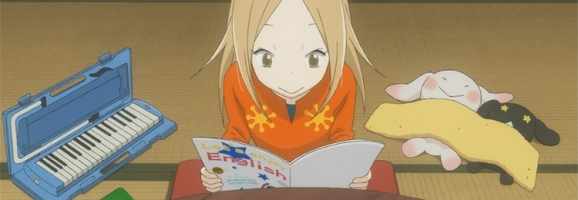
Usagi Drop is sort of what would happen if you took the last part of CLANNAD After Story and turned it into a 11 episode anime. It was adapted from the first half of the josei (for women) manga by Yumi Unita. Since the second half of the manga deals with a 10 year time-skip, and eventually touches on some sensitive subjects, it appears Production I.G didn’t want to go there. If you would like to explore more information on Usagi Drop, you can do so here. Usagi Drop explores almost every form of relationship mentioned previously but from the perspective of an adult. Meet 30-year-old Kawachi Daikitchi, who doesn’t really care for children. He is cynical and hard-working, until he takes it upon himself to raise a 6-year-old girl, Rin. Daikitchi’s ability to be self-sufficient and rational is a breath of fresh air in anime land.
The relationship between a guardian and a child is the main dynamic explored here. Plenty of anime characters have parents missing from the picture, but an even smaller portion have a guardian to back it up. As listed in Birth Mother Myths (2006) it is a common belief that adopted children will grow up to have psychological problems or that their adopted parents can not love their child as much as they can. Most up-to-date psychology textbooks state it doesn’t matter who your ‘parents’ are so long as their parenting methods have a healthy effect on the child. Usagi Drop also attempts to break free of this paradigm.
Rin is born into unusual circumstances: her biological father is dead and her mother abandoned her. From as early as episode two, and even more so in the manga, we see the effects of Rin’s biological upbringing. There are obvious signs of maladjustment such as bedwetting, separation anxiety, a reluctance to interact with others and an overwhelming sense of responsibility. Of course, the famous nature vs nurture debate could come into play here too. Intrigued to the story behind Rin’s situation Daikitchi meets Rin’s mother and hears about her neglectful behavior. Rin learns over time through Daikitchi’s imperfect yet admirable efforts that she is in a safe space. Another anime that depicts a sombre side of a guardian/daughter relationships is Gunslinger Girl (2003). In this show, prepubescent girls are brainwashed to become killing machines. These five girls have ‘handlers’ whose have the role of keeping an eye on the girls development. Although some of the handlers create differing relationships with their partners. For example, Henrietta and Jose are co-workers one moment, then have an affectionate father/daughter dynamic the next. Other pairings co-exist as co-workers, friends or strangers. I won’t deny the exploration of these relationships in Gunslinger Girl are fantastic. However, they are unconventional, but worth seeking out if you’re interested.
The other relationship explored in episode 7: Secretly Running Away from Home is the extra changes children bring to marriage. Daikitchi’s cousin comes to stay at his house while she sorts out her feelings for her husband in a constructive manner. She explains how her feelings have changed now her daughter has come into the picture.Daikitchi listens to her and reflects on how ignorant he is at 30. Very rarely in anime do characters explore their decision to get married. Adult characters are more often than not pushed to the side. A heartbreaking depiction of a guardian/daughter relationship is in the final few episodes of AIR (2005). Overwhelmed with regret, Haruko tries desperately to develop a relationship with Misuzu in the last stages of her life. Another attempt at exploring a marriage in anime is Please Teacher (2002), a romantic comedy with a sci-fi edge. Sadly, since the marriage is on equal merits with Sandra Bullock’s The Proposal (2009) it is a clear example of how Usagi Drop portrays the grey areas of marriage more believably. Please Teacher has been critiqued for its unrealistic, unbelievable, non sympathetic pairing.
If there is any flaw in Usagi Drop, it could be the show doesn’t really go anywhere. Each episode is relevant to the development of Daikitchi and Rin’s relationship, but it isn’t plot driven. It isn’t laden with mecha fights, fanservice, high school students, or general weirdness to be expected from anime. I have come across men in their 20s enjoying it despite its target audience being women. It is a simple story for those who are interested in children and parenting, whether you’re baby-crazy (Archer, anyone?), thinking about it or simply curious. As the show stops half way through the manga, there isn’t a great deal of a conclusion, but it ends on a relevant and heartwarming note, as Daikitchi forms a solid opinion about his new life circumstances. It is funny, adorable, and touching story with lovable characters and great music. Highly recommended.
2. Mawaru Penguindrum (2011)
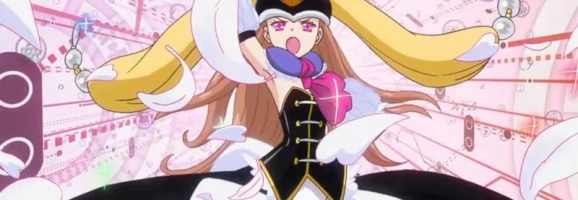
The greatness of Mawaru Penguindrum has been written about in terms of a review and a character study. It takes all these previous ideas and asks the question: What is a family? If we are talking official terms The Australian Bureau of Statistics defines it as:
“…two or more persons, one of whom is at least 15 years of age, who are related by blood, marriage (registered or de facto), adoption, step or fostering, and who are usually resident in the same household.Each separately identified couple relationship, lone parent-child relationship or other blood relationship forms the basis of a family. Some households contain more than one family. Non-related persons living in the same household are not counted as family members (unless under 15 years of age)”.
It goes into more detail on the website, which is worth reading if you’re interested.
As we discover close to the end of the series, Shoma, Himari and Kanba are individuals from different families. Himari was found by Shoma in the Child Broiler and Kanba has a twin sister. However, throughout the majority of the show we are lead to believe they are a family. They behave so much like one, after all – eating their meals together, going on family outings and referencing each other as “brother” and “sister”. Ringo says to Shoma early in the series that they are trying to overcompensate to try to hide the fact they are loosely related. This is not too far from the truth.
Besides Fruits Basket, Penguindrum displays the many faces of sibling relationships in great detail. Each member interacts with the other sibling in a different way, but still co-exist as a unit. The differences in how the two brothers interact with Himari has heavy contrast. Consider Kanba, whom is the eldest. He takes on a lot of responsibility to provide money for the family and keep it organized. Outside of home he is as spontaneous and disorganized as can be – meeting up with girls and wandering about on his own. He is incredibly protective of Himari to the point of being possessive. Shoma and Kanba share an almost too-pleasant of a sibling relationship. They are equally softly spoken, mature peace keepers, so rarely fight as a result. Shoma looks upon Himari fondly but does not go to the same extent that Kanba does to protect her. He is more laid back and flexible, perhaps because he hasn’t taken on the ‘parenting’ role.
It is hinted throughout the show that Kanba and Himari may experience aspects of a romantic relationship. The more Kanba lacks control in a situation the more responsibility he will take upon himself to make up for it. This adds to so much pressure that he often lashes out – for example, getting in a fist fight with Shoma and ignoring Himari’s desires for the sake of his own self-gratification. Taking on aspects of the parenting role (providing an income) and the stresses it provides is also displayed to some extent in Matt and TK Ishida’s brotherly relationship in Digimon (2000), Mai and Takumi Tokiha in Mai HiME (2004) and brought to a psychotic extreme with Lelouch and Nunnally Lamperouge in Code Geass (2006). All of these characters are overwhelmed with responsibility, and have moments of aggression because of it.
Aside from sibling interactions Penguindrum attempts to break the mold of what a family is. Much like in “Birth Mother Myths” Penguindrum reinforces the fact that one does not necessarily ‘need’ a connection with biological parents, although it is a nice thing to have. The grief experienced when lacking a parent as written by Hope Edelman in Motherless Mothers is something that may lessen over time, but never truly go away. It is something that can be managed much like mental illness. The desire to create a family seems to have differing effects. In Fruits Basket it’s never stated that Tohru is trying to be part of the Sohma family. Here, the Takamura family make a very conscious effort to become a family unit.
Non biological family ties are rare in anime. A similar idea is explored somewhat in Please Twins (2003), where Mina and Karen are trying to discover who the real biological sister is, while being confused as to whether to consider themselves family or not. Creating your own family appears to be the underlying message of the action-drama Futakoi Alternative (2005). Here, Shirogane twins Soujo and Sara find they are happiest with their friend Rentaro, who shares the role of co-worker, house mate, friend and eventually a pseudo lover. Besides Penguindrum, Futakoi Alternative depicts this idea in the most detail (out of all the anime I have seen). I have observed that a person may desire to create new definitions for family to cope with the grief of dysfunctional or non existent biological relationships. At the end of the day, Marawaru Penguindrum tries to tell us that there is more to family than simply whose DNA is raging inside our cells, and it doesn’t matter what the rules are so long as the persons involved are happy.
1. Wolf Children (2012)
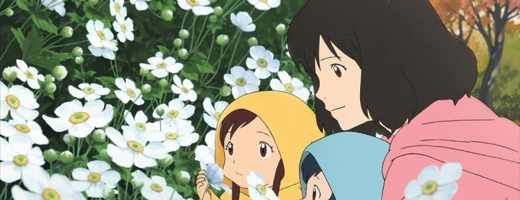
Ōkami Kodomo no Ame to Yuki or more simply Wolf Children is the latest Madhouse instalment by director Mamoru Hosada (Summer Wars). It’s a very simple story about Uni student Hana, whom falls in love with a ‘wolf man’. One thing leads to another, and they have 2 wonderful children, whom, thank you genetics, can also turn into wolves! For those who enjoyed Studio Ghibli’s My Neighbor Totoro (1988) or Kiki’s Delivery service (1989), this should be next on your to-watch list. It doesn’t have action scenes, but instead lots of screaming, giggling children and relatable family experiences. While Summer Wars (2009) and to a lesser extent, the Girl who Leapt Through Time (2007) deal with visual elements like time vortexes and the inside of computers, Wolf Children is a step back to reality. We see more of forests, snow, cities and building complexes. It is a different side to Hosada. Here he emphasizes the importance of nature and family rather than science fiction. When asked about this in an interview by Anime News Network, Hosoda mentioned that he likes to add fantastical elements to very down to earth situations, as it makes the audience notice things they may not notice otherwise. He aims to inspire audiences to see the blessings within day-to-day living.
The narrative structure of Wolf Children has been the target of some criticism. Zac Bertschy from Anime News Network mentions on the podcast it lacks character direction. The film plays out the life story of the children like Milenium Actress (2001) or to some extent Cloudy with a Chance of Meatballs (2009). Within the first half the film we see Hana’s struggle to raise her children as a single mother. In the second half of the film the focus shifts more towards the children themselves and their transitions into an early adulthood. Wolf Children doesn’t focus any one character exclusively but tries to cover these three. Do the characters suffer from this? One can wonder how much more detail a feature film could have managed. If Wolf Children picked one character to follow like in Milenium Actress, the other characters would be pushed to the side. In The Breakfast Club (1985) five characters struggles are explored in great depth, but we are only getting a picture into one stage of their life. In remaining light-hearted yet sincere, Wolf Children covers nearly every single dynamic this article has covered: mother to parents, husband and wife, a lack of a parental figure and siblings. With a smaller running time it doesn’t go into much detail as previous titles. Instead, it gives a nice summary, as well as being incredibly uplifting and reminding you of why we bother with all our family nonsense.
Wolf Children depicts a more positive, realistic portrayal of a family without being overly bitter. My Neighbor Totoro (1988) likes to glorify family relationships with giggles and smiles. Wolf Children shows the greys in between. For example, Ame and Yuki struggle with identity issues and uncertainty as both toddlers and primary school children. They wonder about their father, what the meaning of their condition is, how to handle it and how to make friends. It is very interesting and fitting to show the kids value’s change as their lives progress. The girl Yuki loved turning into a wolf as a toddler, but changes her mind so she can fit in with kids at school. Ame is the opposite. As a toddler, Ame is very disheartened by his ability to turn into a wolf, but as he gets older decides that being a ‘lone wolf’, quite literally, is what fits his personality and interests the most. Is this much different to narrowing down, or changing your interests over time? The two siblings have a fight near the end of the movie, as their conflicting ideals come to the surface. Even in My Neighbors the Yamadas a fight of that amplitude is never shown.
If there are any flaws, it could be the story isn’t so much about the magical kids who can turn into wolves, but an ordinary story about growing up, which may not hold action-lovers attention for very long. It isn’t going to make your heart race like Summer Wars or get Doctor Who level confused in The Girl who Leapt through Time, but it will make you smile, giggle and maybe even cry. The themes of wanting to belong, finding yourself and family life are something that anyone can relate to, whether you relate more to the kids or the mother. It shows how versatile Mamoru Hosada can be, and it will be fascinating to see what he makes next.
Whether you are invested in the fantastical, strange, obscure or light-hearted one of these titles are ought to give a hit of family goodness these holidays. Fruits Basket, CLANNAD, Usagi Drop, Mawaru Penguindrum and Wolf Children are the strongest I have seen in terms of aesthetics, strong storytelling, memorable characters and wrapping it together with a more believable, in depth portrayal of family relationships than seen in most anime. If you want something less happy-go-lucky, darker titles like Neon Genesis Evangelion, Gunslinger Girl or Futakoi Alternative also go into a lot of depth and are worth seeking out if their mix of genres suit your tastes.
What do you think? Leave a comment.




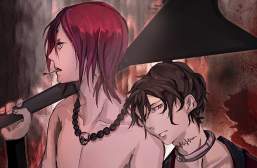
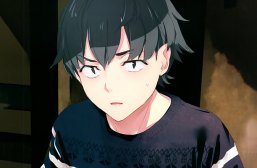
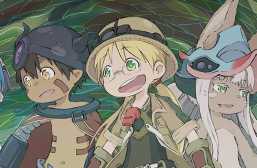
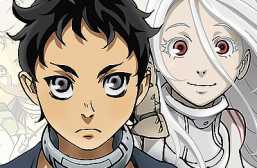
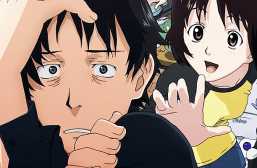
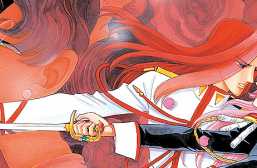
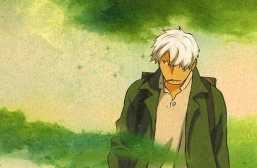
I absolutely adored Wolf Children! It’s one of the rare movies that kept creeping back into my mind even a week after I’d seen it; couldn’t stop thinking about it. The animation really is beautiful, coupled with some heartwarming scenes that really go together to create one of my favorite ‘coming-of-age’ films. Easily my favorite non-Studio Ghibli film.
The only negative I could really give it (without spoiling it) is that I would’ve liked to have gotten a bit more closure on one of the children at the end, and that some parts of the film came across as a little predictable. But that’s just a personal nitpick.
I’ll be buying the Bluray as soon as I can!
I still really want to see the Girl Who Leapt Through Time, heard many good things. Only trouble is that I live in a small rural town and the video store here has VERY limited selection with regards to Jap Anime, and doesnt have that particular one. But I can get it on itunes so will watch soon.
I enjoyed Wolf Children but compared to the other two Mamoru Hosoda movies, it was more on the sadder side. I loved Summer Wars, really liked The Girl Who Leapt Through Time and liked Wolf Children. I do own all three on Blu Ray and eagerly await anything Mamoru Hosoda does in the future.
I think because the film was not so much focused on the sci-fi and something more down to earth that it comes across as more serious.
I’ve only seen the film once–and in English, mind–but I would rate it a solid 9. Maybe on a repeat viewing it might creep up to a 10. I thought it was amazing.
Recommending the following on-topic titles:
-Ichigo Mashimaro (its about sisters)
-Lucky Star
-Tsuritama
-Wagnaria!!
-Azumanga Daioh
Usagi Drop was my first slice of life anime and I have to say, if this is what to expect, I’m going to be a big fan. Thanks for the list, handy and great timing.
Okay this is a tricky one. While yes, I found this show entertaining, its realistic characters and its window into Japan’s family ties it ultimately failed to move me. First few episodes were dynamic but it fizzed out quite quickly after. Way too much moral lecturing on the virtue of sacrifice and too little structured plot.
Maybe I am a sucker for sweet stories but I agree, this is a lovely anime and very recommendable and definitely one I won’t forget soon.
Wolf Children is a great film. Just a bit of nit picking though… Normally I don’t like when CGI is used within traditional animated films, but this was an exception. It wasn’t over used, but it was still beautifully done. I wonder how the mom explained about the disappearance of Ame after he left for the mountain. I’m sure her neighbors, and school teachers would be curious. And I don’t think it would’ve killed Ame to at least change human for one last time, give his mom a hug goodbye. Just my two cents, but he didn’t seem so grateful for such a loving parent.
Loved Clannad AE! I enjoyed seeing Tomoya’s married life with Nagisa, Tomoya’s life as a single parent and especially the last episode when Tomoya and Nagisa goes back in time to the place where they first met.
One of my favourite arcs was the Yukine one with the rival gangs, it reminded me a bit of West Side Story. I liked seeing Tomoya fight, and Tomoyo fight again as well.
I liked After Story but I don’t know I am struggling getting into original CLANNAD. I put it off for a couple of months should I pick it up again? I didn’t get too far into it.
Beautiful art style, Great characters (Tomoya, Sunohara and Nagisa’s dad FTW), and a hilarious/tragic plot.
There’s absolutely nothing I hate about this series, except the ending felt a little rushed, but hey, I’m not complaining.
I tried to get my partner to watch After Story without seeing CLANNAD and it didn’t work because he couldn’t connect to any of the characters. Are you finding this?
CLANNAD is worth it for Fuko, Kotomi and Nagisa’s acs. The episodes in between these aren’t so great.
This is a great anime indeed. I really like the relationship between Tomoya and Nagisa. They seem to be a perfect couple because of their dreams
There’s so much to love about his series i love the episode with Miseae,the Yoshino backstory and all of that to. I loved the ending a lot also. The episodes with Tomoya and little Ushio were also amazing.
I like the episode where Sunohora ‘dates’ Sanae best. It was really really funny. The one I liked second-most was one of the later episodes, where Tomoyo spents a day for the first time together alone with his daughter. The train-ride scene at the end, where Tomoyo tells his daughter about Nagisa, remembers her and then cries – that was one of the saddest moments for me in the entire series. My throat really hurt, because I tried very hard not to cry.
one of my favorites was episode 4 “With the Same Smile as That Day”. While I was actually pretty angry at Tomoya for the first time in the series (he was telling lies to Sunohara, how else would Youhei react?), the episode really showed the strength of their friendship.
Clannad’s male protagonist seems to represent well male protagonists in later anime (broken family, possibly poor, etc.).
I wish the would do a remake of Fruits Basket. I have not read the Fruits Basket manga, but I read about how things were different and it would certainly be interesting to see.
I like Yuki in the manga, but I never cared for him in the anime… I think it was his voice. It was so… I can’t even explain. It sounded like the voice actor was trying to make him sound mysterious, but the voice ended up sounded weak and emotionless. I dunno… I just didn’t like it.
Much as I detest the last episodes of the anime, I have to admit, the scene where Yuki tackles Kyo is the best voice acting we hear from him. He actually sounded like a normal person. I think if he had talked like that through the entire season, Yuki would have sounded much better…
lol In the dub I can sort of understand. I don’t know about the Japanese though.
I never finished the manga, but I know enough from online resources. The manga is disappointing, since I read half of the manga before I seen the series, and I knew when I saw a scene what would happen; and I compared and contrasted.
I like this show because some of the characters are relate able and certain things were done well. If you want the plot development you should read the manga it’s so much better then the anime. The show only gave us the beginning and didn’t include the goal of breaking the curse, introduction of some great new characters, Akito’s story and you see everyone grow up. I understand if you wouldn’t want to read it but when people talk about Fruits Basket they mostly talk about the manga.
Shame it’s not my holidays anymore, but I did watch Wolf Children when it was the holidays and I really liked it. Was indeed quite moving.
Enjoyed reading this! In addition to those, what about
* Ah! My Goddess is a wonderful anime show! Highly recommended!
* Negima! Magister Negi Magi
* Ouran
Ouran did have the thing with the twins and Haruhi’s parents. Or lack thereof. 😛
I saw the first two in this list and if the rest (which I didn’t read into to avoid spoilers) are just as sad I’m in for a treat. Probably not good to watch this right after AnoHana.
I have yet to see Anohana. It sounds great!
Again another very good review. The idea of family, especially in Japanese anime, can become really complex in certain anime. I do not really remember if Kare Kano showed the family complexity, but it was a shocking read.
I found Wolf Children was quite a heartwarming film to watch in its depiction of family. I feel there should’ve been a second season of Fruits Basket to delve more into the plot of the manga.
Out of these my favorite in order:
Wolf Children
Clannad/After Story
Fruits Basket
Usagi Drop
I did not read the article over fear of the spoilers you warned about but rest assured I have every intention to take you up on the talk of Clannad and Wolf Children. Thanks for the recommendations. I will look into Wolf Children shortly.
Wolf Children is gold